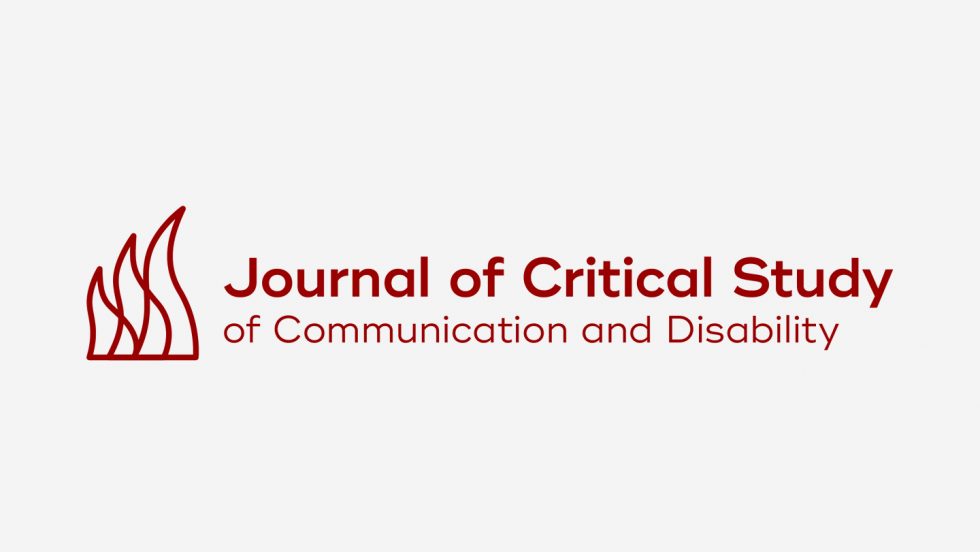
A new interdisciplinary, open access scholarly journal will soon be published—with leadership from Adelphi Professor Reem Khamis, PhD, and support from Adelphi University Libraries—to bridge the knowledge gap surrounding speech and communications disorders as they relate to marginalized people and groups.
The Journal of Critical Study of Communication and Disability (JCSCD) grew from Dr. Khamis’ work with the Speech, Language, Hearing Scientists Equity Action Collective, a group formed in 2020 to promote the dismantling of professional and social ideologies, values, structures, policies and practices that perpetuate racism in the field of speech, language and hearing, and to advance efforts to make it inclusive and equitable. The journal is designed to provide a forum for research, theory, practice, policy, curriculum and community-based engagement using critical science related to people and groups who are marginalized or pathologized for their languaging and ways of communicating.
Dr. Khamis says the journal is a revolution from the ground up against the positivist, medically centered scholarly productions in the study of communication and disability.
“This journal began with our collective of scientists contemplating together that studies addressing social contexts related to the study of speech, language and hearing sciences (SLHS) are published only occasionally in special issue journals like the ones emerging from social crises like the murder of George Floyd, which forced scholarly communities to engage with racism in SLHS,” says Dr. Khamis. “Without a sustained forum to bring together and publish the work of scholars engaged in the study of these topics, the growth of scholarly work in this critical area is hindered by a systematic structural blockade.”
Dr. Khamis’ work in the field of SLHS began with her focus on studying language development in Palestinian communities in Israel. She was the only Arab student in her master’s program at Tel Aviv University, where she examined the development of different Arabic structures in early childhood, recovery patterns in Arabic- and Hebrew-speaking adults with aphasia in medical settings, and augmentative and alternative education programs for special education teachers within Arab schools in Israel. She received a Fulbright scholarship in 2002 to complete her doctoral studies at Columbia University’s Teachers College. After completing postdoctoral studies in the Neurocognition of Language Lab at Teachers College, Dr. Khamis joined the faculty of Adelphi University, where she has taught and conducted research in the Department of Communication Sciences and Disorders since 2008.
Dr. Khamis says that through her research journey, she began to recognize many blind spots of experimental research when focused on culturally and linguistically diverse populations—specifically in how it is “othered” by the greater influence of medically based and monolingual biased epistemologies and research practices.
“I became more aware and appreciative of research that doesn’t shy away from addressing the historical, economic, cultural and social contexts of their matter of query to trace the effect of colonization on the questions we ask in research,” she says. “The study of language development is a great domain for seeing the intersectional impact of power relations, social norms and practices, language policies, exclusionary representation and practices, community resistance, and ethics on the research produced.”
Once Dr. Khamis and her colleagues in the Speech, Language, Hearing Scientists Equity Action Collective decided to pursue a new research publication for the scholarly work they wished to encourage and nurture, she next reached out to Violeta Ilik, dean of Adelphi University Libraries, who had recently launched Adelphi’s Open Access publishing program. Dr. Khamis collaborated with Dean Ilik and Christopher Barnes, PhD, assistant professor and digital publishing librarian, to select a nonprofit Open Access platform that enables the team to run the editorial and production processes for less than a 10th of what commercial publishers would charge. Dr. Barnes worked closely with Dr. Khamis and the other founding editors to create the website, workflows, editorial policies, reviewer guidelines and documentation explaining how it all fits together.
The first issue of JCSCD will be published in the winter or spring of 2023, depending on the peer review process, with a plan to publish twice a year. The journal will be published online, and anyone around the world will be able to read it for free. Funding and support from Adelphi University Libraries will defray the fees that authors are typically asked to pay when publishing their work open access with commercial publishers.
Dr. Barnes says, “This means that any scholar who has research appropriate for the journal can have their voice and expertise heard, regardless of the funding they may or may not have available.”
“I believe this journal will facilitate the change needed in the field so that the clinical work in the discipline can transform to be relevant and equitable to diverse communicators,” says Dr. Khamis. “Having variations in communication addressed from a strength position, rather than from pathologization and standardization, will lead to a more positive, inclusive understanding of SLHS.”
This story was featured in the Fall 2022 edition of Scholars and Artists of Adelphi University. View the full newsletter, which highlights the scholarly and creative work of Adelphi’s faculty members.